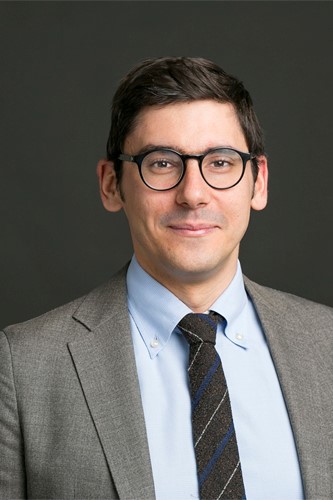Studying at the University of Verona
Here you can find information on the organisational aspects of the Programme, lecture timetables, learning activities and useful contact details for your time at the University, from enrolment to graduation.
Academic calendar
The academic calendar shows the deadlines and scheduled events that are relevant to students, teaching and technical-administrative staff of the University. Public holidays and University closures are also indicated. The academic year normally begins on 1 October each year and ends on 30 September of the following year.
Course calendar
The Academic Calendar sets out the degree programme lecture and exam timetables, as well as the relevant university closure dates..
| Period | From | To |
|---|---|---|
| primo semestre (lauree magistrali) | Oct 5, 2020 | Dec 23, 2020 |
| secondo semestre (lauree magistrali) | Mar 1, 2021 | Jun 1, 2021 |
| Session | From | To |
|---|---|---|
| sessione invernale | Jan 11, 2021 | Feb 12, 2021 |
| sessione estiva | Jun 7, 2021 | Jul 23, 2021 |
| sessione autunnale | Aug 23, 2021 | Sep 17, 2021 |
| Session | From | To |
|---|---|---|
| sessione autunnale (validità a.a. 2019/20) | Dec 9, 2020 | Dec 11, 2020 |
| sessione invernale (validità a.a. 2019/20) | Apr 7, 2021 | Apr 9, 2021 |
| sessione estiva (validità a.a. 2020/21) | Sep 6, 2021 | Sep 8, 2021 |
| Period | From | To |
|---|---|---|
| Vacanze di Natale | Dec 24, 2020 | Jan 6, 2021 |
| Vacanze di Pasqua | Apr 3, 2021 | Apr 6, 2021 |
| Vacanze estive | Aug 9, 2021 | Aug 15, 2021 |
Exam calendar
Exam dates and rounds are managed by the relevant Economics Teaching and Student Services Unit.
To view all the exam sessions available, please use the Exam dashboard on ESSE3.
If you forgot your login details or have problems logging in, please contact the relevant IT HelpDesk, or check the login details recovery web page.
Academic staff
 mario.furno@univr.it
mario.furno@univr.it
 francesca.rossignoli@univr.it
francesca.rossignoli@univr.it
 0444 393941 (Ufficio Vicenza) 0458028261 (Ufficio Verona)
0444 393941 (Ufficio Vicenza) 0458028261 (Ufficio Verona)

Vannucci Virginia
 virginia.vannucci@univr.it
virginia.vannucci@univr.it
Study Plan
The Study Plan includes all modules, teaching and learning activities that each student will need to undertake during their time at the University.
Please select your Study Plan based on your enrollment year.
1° Year
| Modules | Credits | TAF | SSD |
|---|
2° Year activated in the A.Y. 2021/2022
| Modules | Credits | TAF | SSD |
|---|
2 modules among the following1 module between the following| Modules | Credits | TAF | SSD |
|---|
| Modules | Credits | TAF | SSD |
|---|
2 modules among the following1 module between the following| Modules | Credits | TAF | SSD |
|---|
Legend | Type of training activity (TTA)
TAF (Type of Educational Activity) All courses and activities are classified into different types of educational activities, indicated by a letter.
International business and governance (2021/2022)
Teaching code
4S008984
Teacher
Coordinator
Credits
6
Language
English
Scientific Disciplinary Sector (SSD)
SECS-P/07 - BUSINESS ADMINISTRATION AND ACCOUNTING STUDIES
Period
secondo semestre (lauree magistrali) dal Feb 21, 2022 al May 13, 2022.
Learning outcomes
This course aims at developing the skills in understanding the corporate dynamics towards the development of global business model. Firstly, the course explores the transnational organizations suitable for deploying a global business model, even with the support of case studies. Secondly, the course focuses on the governance mechanisms that allow transnational organizations – in the different forms – to govern the decision-making process. By building on the knowledge about international corporate interactions, the course deals with the global business model’s creation and development. Finally, the course offers a deep understanding of the corporate report suitable to convey the proper representation of the business model performance with the goal to capture its ability to create value. At the end of the course, the student will be able to: - understand different forms of transnational organizations suitable to launch the company toward an international development of its business; - master the governance mechanisms that steer the corporate decision-making processes in transnational organizations; - report the strategic and managerial features, as well as the performance in terms of value creation by the global business models.
Program
1. International business models
1.1 Competing around the world
1.2 Value creation and business model
1.3 Business strategies
2. Developing a global business model
2.1 Vertical integration and diversification
2.2 Corporate alliances, mergers and acquisitions
2.3 Organizational design and control in multinational corporation
3. Corporate governance
3.1 Governance codes and best practice in international contexts
3.2 Governance mechanisms and structures
3.3 Corporate governance reporting
Teaching materials
The content of the textbook and of the lessons are consistent with the programme. Both the programme and the studying materials are the same for students who attend and students who do not attend the course. Teaching slides and further readings will be available on the e-learning platform (teaching Dashboard).
Bibliography
Examination Methods
Students will be assessed through:
1. A teamwork analysis of the business, organisational structure and governance of a multinational corporation. The teamwork provides for the drafting of a 10 page report (in word or pdf), which is due towards the end of the course, and a 3-5 slide presentation. The teamwork can be done entirely at a distance, through software and applications made available by the University of Verona. The teamwork aims at assessing the capability acquired in performing and discussing a business case. Furthermore, the capabilities will be assessed, both individually and collectively, in interpreting a business case, in communicating with the group members and in written and oral communications. The teamwork will provide students with maximum 3 points.
2. A final examination, that consists in an individual written test on the whole program and aims at assessing the knowledge of the topics studied during the course. The written examination is structured into two parts: the first part includes 10 multiple-choice or true/false questions; the second part includes 2 semi-open questions and may include case analysis. The examination lasts 60 minutes, provides students with maximum 30/30 points, and will be held at a distance (i.e., online).
The final mark is obtained by the sum of the two partial points.
Type D and Type F activities
| years | Modules | TAF | Teacher |
|---|---|---|---|
| 1° | Future matters | D |
Alessandro Bucciol
(Coordinator)
|
| 1° | Future matters | D |
Alessandro Bucciol
(Coordinator)
|
| years | Modules | TAF | Teacher | |
|---|---|---|---|---|
| 1° | The fashion lab (1 ECTS) | D |
Maria Caterina Baruffi
(Coordinator)
|
|
| 1° | The fashion lab (2 ECTS) | D |
Maria Caterina Baruffi
(Coordinator)
|
|
| 1° | The fashion lab (3 ECTS) | D |
Maria Caterina Baruffi
(Coordinator)
|
|
| 1° 2° | Introduction to the use of R - 2020/21 | D |
Francesca Rossi
(Coordinator)
|
|
| years | Modules | TAF | Teacher |
|---|---|---|---|
| 1° | Design and Evaluation of Economic and Social Policies | D |
Federico Perali
(Coordinator)
|
| 1° | Public debate and scientific writing - 2020/2021 | D |
Martina Menon
(Coordinator)
|
| 1° | Soft skills coaching days Vicenza (terza edizione) - 2020/2021 | D |
Paola Signori
(Coordinator)
|
| 1° | Wake up Italia - 2020/2021 | D |
Sergio Noto
(Coordinator)
|
| years | Modules | TAF | Teacher | |
|---|---|---|---|---|
| 1° | Professional Communication for Economics | D |
Claudio Zoli
(Coordinator)
|
|
| 1° | Transactional skills in business law - 2020/2021 | D |
Caterina Fratea
(Coordinator)
|
|
| 1° 2° | Bases of data visualization. A software-free introduction - 2020/21 | D |
Angelo Zago
(Coordinator)
|
|
Career prospects
Module/Programme news
News for students
There you will find information, resources and services useful during your time at the University (Student’s exam record, your study plan on ESSE3, Distance Learning courses, university email account, office forms, administrative procedures, etc.). You can log into MyUnivr with your GIA login details: only in this way will you be able to receive notification of all the notices from your teachers and your secretariat via email and also via the Univr app.
Linguistic training CLA
Internships
Gestione carriere
Student login and resources
Prova finale
La prova finale consiste in un elaborato in forma scritta di almeno 60 cartelle, che approfondisce un tema a scelta relativo a uno degli insegnamenti previsti dal piano didattico dello studente. Il tema e il titolo dell’elaborato dovranno essere selezionati in accordo con un docente dell’Ateneo di un SSD fra quelli presenti nel piano didattico dello studente. Il lavoro deve essere sviluppato sotto la guida del docente. La tesi è oggetto di esposizione e discussione orale, in una delle date appositamente stabilite dal calendario delle attività didattiche, dinanzi a una Commissione di Laurea nominata ai sensi del RDA. In accordo con il Relatore, la tesi potrà essere redatta e la discussione potrà svolgersi in lingua inglese.
Per maggiori informazioni e la consultazione delle scadenze e delle commissioni di laurea si rimanda all'apposita sezione dei Servizi di Segreteria studenti.
List of thesis proposals
| theses proposals | Research area |
|---|---|
| PMI (SMES) and financial performance | MANAGEMENT OF ENTERPRISES - MANAGEMENT OF ENTERPRISES |
| I modelli organizzativi ex. d.lgs 231/2001: diffusione sul territorio | Various topics |
Modalità di frequenza, erogazione della didattica e sedi
Le lezioni di tutti gli insegnamenti del corso di studio, così come le relative prove d’esame, si svolgono in presenza.
Peraltro, come ulteriore servizio agli studenti, è altresì previsto che, salvo diversa comunicazione del singolo docente, le lezioni siano videoregistrate e che vengano messe a disposizione sui relativi spazi e-learning degli insegnamenti alcune settimane dopo il loro svolgimento. Eccezioni a questa tempistica saranno possibili solo nel caso degli studenti a tempo parziale.
La frequenza non è obbligatoria.
Maggiori dettagli in merito all'obbligo di frequenza vengono riportati nel Regolamento del corso di studio disponibile alla voce Regolamenti nel menu Il Corso. Anche se il regolamento non prevede un obbligo specifico, verifica le indicazioni previste dal singolo docente per ciascun insegnamento o per eventuali laboratori e/o tirocinio.
È consentita l'iscrizione a tempo parziale. Per saperne di più consulta la pagina Possibilità di iscrizione Part time.
La sede di svolgimento delle lezioni e degli esami è l'University Hub


















